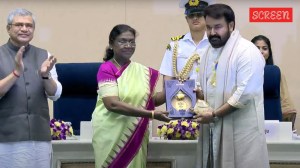Blasphemy yesterday, policy today: Left shows the way with ID cards
Until very recently, it would have been sacrilege to even suggest such a move in Left-ruled West Bengal. But last week, Buddhadeb Bhattachar...

Until very recently, it would have been sacrilege to even suggest such a move in Left-ruled West Bengal. But last week, Buddhadeb Bhattacharjee’s Left Front government, brushing aside objections to signal it’s aware of the dangers the state’s porous borders pose to national security, became one of the first states to embark on a pilot project which will arm all citizens with Multipurpose National Identity Cards (MNICs).
This is in sharp contrast to the 1990s when the CPI(M) saw red over then chief election commissioner T N Seshan’s drive to distribute electoral ID cards to voters across the country. Seshan had to fight tooth and nail for his cards. He personally delivered one to then West Bengal CM Jyoti Basu to prove his point.
The MNICs, in fact, are miles ahead of the elementary electoral cards. The pilot project involves three stages:
• Setting up a citizen’s data bank through cent per cent house-to-house survey
• Taking photographs and biometry of each individual and integration of the individual data with photograph and biometry
• Verification of the data by a senior team comprising state and central officers
|
Iranians in a spot
|
|||||
Once claims and objections are sorted out, a Local Register of Indian Citizens (LRIC) will be created, and then a National Register (NRIC). Those who find a place in the NRIC will be given the MNICs which will carry microchips enabling computers to read data, photo and biometry.
All Indian citizens will also be given National Identity Numbers (NIN). Every child below 15 years will have a card without a photograph.
Once the whole process is complete, the distribution of cards will start early next year in the pilot project area.
In Kolkata, bureaucratic and political circles have been discussing Buddhadeb’s interest in the mega project. They see it as another indication of the rapport he shares with Advani. ‘‘In the new scheme of things, ‘infiltration’ for Buddhadeb is as much an evil as Advani would like it to be,’’ quips a senior bureaucrat.
The change in perception among the Left is evident down the ladder. Mainul Hassan, the CPI(M) MP from Murshidabad and a state committee member, says: ‘‘The project is very essential because politics and security environment in the country have changed. Infiltration is a problem and needs to be checked.’’
But Hassan admits it is ‘‘a very sensitive issue’’ and that ‘‘exhaustive and every care should be taken to ensure that a genuine Indian citizen is not left out’’.
Hassan’s fears are not unfounded. An enumerator in Murshidabad-Jiaganj block explains just a few of the problems: ‘‘In the first round, we are to enlist houses, makeshift shanties or whatever shelter one has and then ask as many as 18 questions to each individual of a family above the age of 15. The process puts more emphasis on netting the entire population first and then taking up the weeding-out process.’’
After the pilot project, inclusion and deletion of new names in the register will be through birth and death registration only. The necessary infrastructure for this will be set up, says Subodh Roy Chowdhury, executive officer of Lalbagh municipality and now one of the supervisors of the exercise.
Photos



- 01
- 02
- 03
- 04
- 05




























